Department of Civil and Environmental Engineering
Henry Samueli Endowed Fellowship
One of the premier awards offered to incoming or continuing graduate students in the school. This award is funded by Henry Samueli, co-founder of Broadcom Corporation, after whom the school is named. The award is open to Ph.D. students showing exceptional promise of technical and scholarly work in civil and environmental engineering. The number of awards and amounts varies each year.
Eligibility Criteria:
- Be a continuing Ph.D. student in the Civil and Environmental Engineering program.
- Be enrolled full time in the quarters the fellowship is to be disbursed.
A call for applications will be sent by the Graduate Coordinator to continuing Ph.D. students during the year the fellowship funding is available.
2024/25 Awardees
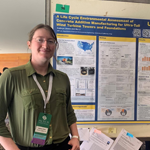
Kathryn Jones
Faculty Advisor: Mo Li
Research Title: Sustainable Additively Manufactured Concrete for Wind Energy Infrastructure based on a Life Cycle Framework
Research Interests: In my research, I'm focused on investigating and developing sustainable 3D printed concrete materials based on a life cycle approach. The goal of my research is both to understand the life cycle environmental impact of large-scale 3D printed concrete structures, and to mitigate the greenhouse gas emissions of 3D printed cementitious materials while maintaining their mechanical performance. Right now, I'm working on developing novel methodologies to incorporate recycled concrete as a substitute for cement and sand in printed concretes. Understanding how the material properties of the recycled components relate to the printability of a finished concrete can help us predict the maximum amount of locally available recycled material that can be used in a unique 3D printed concrete, without negatively impacting its performance. This in turn will help to enable more sustainable and automated construction solutions.

Donghui Ma
Faculty Advisor: Christopher Olivares Martinez
Research Title: Microbial Enzymatic Transformation and Community Response to PFAS and AFFF in the Environment
Research Interests: My research focuses on the interactions between per- and polyfluoroalkyl substances (PFAS) and environmental microbial communities. Specifically, I am identifying key microbial enzymes involved in PFAS transformation. Using a cell-free enzymatic system, I have tested over a dozen PFAS precursors to screen for microbial enzymes capable of transforming specific PFAS compounds. I aim to characterize their transformation pathways and reaction kinetics. In another ongoing project, I am investigating how microbial communities respond to the environmental release of aqueous film-forming foams (AFFF). My research seeks to answer the following questions: How does the PFAS composition in AFFF evolve over time? As PFAS compounds are transformed, how do microbial community structures shift? And how are microbial metabolic pathways perturbed throughout this process?

Yifu Gao
Faculty Advisor: Jasper Vrugt
Research Title: Soil Moisture–Precipitation Coupling under A Changing Climate
Research Interests: My research investigates how soil moisture drives precipitation variability in transitional climate zones (e.g., the Great Plains). This soil moisture–precipitation coupling (SMPC) modulates near-surface climate through shaping energy partitioning, boundary layer dynamics, and mesoscale circulation, influencing extremes like floods and droughts. By integrating observational and model data, I identify and quantify linear and nonlinear land-atmosphere interactions that trigger and control precipitation. Using advanced global sensitivity analysis approaches, I introduce generalized coupling strength to re-delineate SMPC hotspots across the contiguous United States, yielding characteristic response functions that describe direct and indirect SMPC pathways.

Jialin Dong
Faculty Advisor: Christopher Olivares Martinez
Research Title: Predictive Machine Learning Modeling of PFAS Fate and Transport
Research Interests: Jialin’s research centers on the environmental fate and transport of "forever pollutants", per- and polyfluoroalkyl substances (PFAS), integrating environmental analysis with data mining and machine learning techniques. Her work focuses on developing predictive models to assess PFAS contamination in groundwater and wastewater treatment plants, supporting regulatory monitoring and public health protection. She has built a statewide PFAS database and implemented high-accuracy machine learning models to identify contamination patterns and key risk factors. Her ongoing research expands this framework to a national scale, integrating diverse datasets to improve PFAS risk assessment and guide evidence-based environmental policy
2022/23 Awardees

Ziwei Han
Faculty Advisor: Adeyemi Adeleye
Research Title: Immobilization of heavy metals in environmental matrices using iron-based engineered nanoparticles
Research Interests: The central theme of my doctoral research is using engineered nanoparticles to improve the quality of the environment. I synthesize pristine and modified nanosized iron (Fe0) particles and use them to immobilize toxic heavy metal(loid)s in environmental matrices such as water and soil. To gain fundamental knowledge, I employ a wide range of spectroscopic, spectrometric, and microscopic tools to understand the chemistry of interactions among the nanoparticles, target heavy metals, and other important biotic and abiotic factors that are present in the environment. I also use machine learning to enhance understanding on how input parameters influence remediation outcomes, and to optimize the treatment system. In an ongoing study, I am evaluating the potential for using iron nanoparticles as agricultural soil amendments to decrease uptake of heavy metals by plants from soil during cultivation.

Ajinkya Desai
Faculty Advisor: Tirtha Banerjee
Research Title: Turbulent Fluid Dynamics of Wildland Fires
Research Interests: "My research investigates the interaction between wildland fires and the surrounding atmosphere from a wind-turbulence standpoint on both laboratory (small) and operational (large) scales. Fire behavior in grassland and forested environments is linked with the ambient atmospheric (or canopy) turbulence through a feedback mechanism: one informs the other and vice versa. Such behavior also influences the dispersion of smoke, impacting human health and visibility for civilians residing on the boundaries of wilderness. The goal of my research is to describe, both qualitatively and quantitatively, the organized swirling motions that characterize the complex turbulent environment of a wildland fire. My approach includes the analysis of experimental burn data, the analytical exploration of mathematical fire-spread models, and computer simulations on fire spread in different environments."
2020/21 Awardees
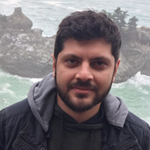
Siavash Zare
Faculty Advisor: MJ Qomi
Research Title: Carbon sequestration in divalent metal silicates
Research Interests: "In order to stabilize the global mean temperature, the total emission of carbon dioxide must approach zero by 2050. It means that the existing and future energy infrastructure must be modified with carbon capture and storage technologies. My research mainly focuses on the natural and synthetic rocks that are capable to permanently store CO2 through complex chemical reactions. The main objective of my research is to identify and optimize the most accessible chemical pathways to store the maximum amount of CO2 using atomistic simulations."
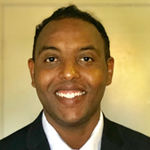
Mohammed Ombadi
Faculty Advisor: Soroosh Sorooshian
Research Title: Applications of Causal Inference, Graph theory and Data Mining in Hydro-meteorological Systems
Research Interests: "Hydrometeorological systems are characterized by complex interactions that manifest only at specific, discrete and dominant spatiotemporal scales. The traditional approach in contemporary hydrology is reductionist in its essence and seeks to obtain predictive understanding of hydrologic processes at the macroscale based on models that aggregate theoretical and empirical knowledge at smaller scales. However, in my research, I use state-of-the-art methods of causal inference and data mining to offer an alternative and complementary paradigm to the contemporary reductionist approach. Generally speaking, methods of causal inference are rooted in networks, information and chaos theories, and they are utilized in tandem with observational datasets to detect regularities and patterns at macroscales. Specifically, I apply these methods to improve our understanding of the dynamic similarity of hydrologic basins and the differential impact of environmental variables in regulating evapotranspiration in addition to developing effective data-driven streamflow forecasting schemes."
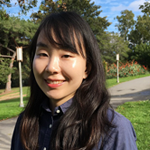
Youngeun Bae
Faculty Advisor: Stephen Ritchie
Research Title: Adoption and Demand Models of Alternative Fuels in Heavy-duty Vehicle Fleets in California
Research Interests: "My research project aims to investigate adoption behavior and develop a demand model of alternative fuels in heavy-duty vehicle (HDV) fleets in California. The specific goal of my study is twofold. First, it attempts to build a theory regarding alternative fuels adoption and nonadoption behavior revealed by HDV fleet operators in California. Second, this study seeks to explore the demand of alternative fuels in the California HDV sector in the near future considering the state’s emission reduction goals. By contributing to the development of more effective policy and technological strategies to facilitate wider adoption of heavy-duty alternative fueled vehicles, this study intends to help improve local air quality and mitigate global challenges of climate change."
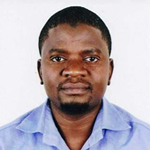
Omobayo Salawu
Faculty Advisor: Adeyemi Adeleye
Research Title: Advanced materials for the removal of emerging contaminants from water
Research Interests: "I am interested in the use of cheap, effective and sustainable materials for environmental remediation. My research is focused on developing new porous carbon materials for the removal of emerging contaminants such as pharmaceuticals, per- and polyfluoroalkyl substances from water. I apply both experimental and computational methods to determine the most appropriate material modification and surface functionalization to increase the affinity and specificity of new adsorbents for target contaminants. The goal of my research is to contribute to the availability of potable water."
2019/20 Awardees
 Jawad Fayaz is working under Farzin Zareian on challenging topics of Performance-Based Structural and Earthquake Engineering, Ground Motion Analysis and Seismic Design of Bridge and Building structures. His research studies broadly have two-fold goals that include: i) improving the design and analysis methodologies of Bridge and Building structures, and ii) prediction of the characteristics of seismic ground motions. His research work mainly involves Reliability Analysis and Time-Series Analysis using Statistical Methods and Machine Learning and Deep Learning techniques. He is determined to implement the earned skills and knowledge for rapid mitigation of hazards posed by earthquakes.
Jawad Fayaz is working under Farzin Zareian on challenging topics of Performance-Based Structural and Earthquake Engineering, Ground Motion Analysis and Seismic Design of Bridge and Building structures. His research studies broadly have two-fold goals that include: i) improving the design and analysis methodologies of Bridge and Building structures, and ii) prediction of the characteristics of seismic ground motions. His research work mainly involves Reliability Analysis and Time-Series Analysis using Statistical Methods and Machine Learning and Deep Learning techniques. He is determined to implement the earned skills and knowledge for rapid mitigation of hazards posed by earthquakes.
PI: Farzin Zareian
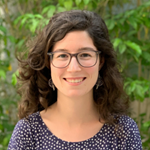 Irene Martinez Josemaria’s research interests are focused on modeling and mitigation of traffic congestion in the era of autonomous, connected, and shared mobility. Traffic congestion is a major issue at individual bottlenecks and at the network level in many metropolitan areas. Research topics related to individual bottleneck include modeling of the impacts of variable speed limits and connected and autonomous vehicles on capacity drop and development of control strategies to prevent, delay, and eliminate the capacity drop phenomenon. Topics related to network level congestion include empirical analysis of trip length distribution, development of a probabilistic agent-based model of network trip flows, optimization of the fleet size of taxis and other mobility service vehicles, and design of congestion pricing.
Irene Martinez Josemaria’s research interests are focused on modeling and mitigation of traffic congestion in the era of autonomous, connected, and shared mobility. Traffic congestion is a major issue at individual bottlenecks and at the network level in many metropolitan areas. Research topics related to individual bottleneck include modeling of the impacts of variable speed limits and connected and autonomous vehicles on capacity drop and development of control strategies to prevent, delay, and eliminate the capacity drop phenomenon. Topics related to network level congestion include empirical analysis of trip length distribution, development of a probabilistic agent-based model of network trip flows, optimization of the fleet size of taxis and other mobility service vehicles, and design of congestion pricing.
PI: Wenlong Jin
2018/19 Awardees
 Antonios Mamalakis is working with Distinguished Professor Efi Foufoula-Georgiou on enhancing physical understanding of large-scale climate variability and teleconnections, and of their regional hydroclimatic impacts. In his research, he also utilizes Bayesian statistics and machine learning techniques to improve regional precipitation and temperature forecast skill at seasonal to inter-annual scales in a changing climate.
Antonios Mamalakis is working with Distinguished Professor Efi Foufoula-Georgiou on enhancing physical understanding of large-scale climate variability and teleconnections, and of their regional hydroclimatic impacts. In his research, he also utilizes Bayesian statistics and machine learning techniques to improve regional precipitation and temperature forecast skill at seasonal to inter-annual scales in a changing climate.
PI: Efi Foufoula-Georgiou
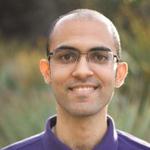 Ali Morshedifard: Concrete is one of the main materials utilized in civil engineering construction in the modern age (annual production of roughly 20 billion tons). Moreover, its time-dependent behavior has a significant impact on the design of various structures such as dams and bridges. Since I joined the department of Civil and Environmental Engineering at UC Irvine, my research has been focused on breaking time and length scale barriers in modeling of cementitious materials with the ultimate goal of a deep understanding of the aging mechanisms involved. We hope that our findings can pave the way to a more environmentally friendly concrete which is a critical challenge of our time.
Ali Morshedifard: Concrete is one of the main materials utilized in civil engineering construction in the modern age (annual production of roughly 20 billion tons). Moreover, its time-dependent behavior has a significant impact on the design of various structures such as dams and bridges. Since I joined the department of Civil and Environmental Engineering at UC Irvine, my research has been focused on breaking time and length scale barriers in modeling of cementitious materials with the ultimate goal of a deep understanding of the aging mechanisms involved. We hope that our findings can pave the way to a more environmentally friendly concrete which is a critical challenge of our time.
PI: Mohammad Javad Abdolhosseini Qomi
2017/18 Awardees
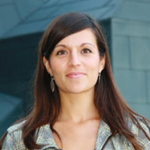 Susana Anacleto-Lupianez is working with Prof. Anne Lemnitzer to investigate the seismic performance of reinforced concrete moment-resisting frame beams with large rectangular web openings. Her main focus is to develop experimentally validated simulation models that are able to predict the highly nonlinear response of this special members when tested under cyclic load reversals up to complete structural failure.
Susana Anacleto-Lupianez is working with Prof. Anne Lemnitzer to investigate the seismic performance of reinforced concrete moment-resisting frame beams with large rectangular web openings. Her main focus is to develop experimentally validated simulation models that are able to predict the highly nonlinear response of this special members when tested under cyclic load reversals up to complete structural failure.
PI: Anne Lemnitzer
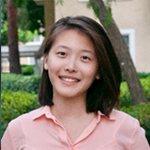 Felicia Chiang’s research goals are focused on understanding the effects of anthropogenic climate change on hydrologic and climate variables. Her primary research interests are quantifying concurrent changes in hydrologic and temperature conditions and deconstructing these changes through the use of climate model simulations.
Felicia Chiang’s research goals are focused on understanding the effects of anthropogenic climate change on hydrologic and climate variables. Her primary research interests are quantifying concurrent changes in hydrologic and temperature conditions and deconstructing these changes through the use of climate model simulations.
PI: Amir AghaKouchak
 Emily Parker's research is focused on green infrastructure for urban runoff management and stormwater harvesting in southern California. She is currently working to understand and model how biofilter design influences stormwater contaminant removal.
Emily Parker's research is focused on green infrastructure for urban runoff management and stormwater harvesting in southern California. She is currently working to understand and model how biofilter design influences stormwater contaminant removal.
PI: Stanley Grant

Emma Reid: The impacts of rising sea surface temperatures may lead to the collapse of global reef ecosystems, however, the effects of climate change on corals are not uniform. Although it is not fully understood what makes certain reefs more resilient to coral bleaching than others, emerging evidence suggests that reefs living in areas with naturally variable thermal environments may have higher temperature tolerance, even across an individual reef. The goal of my research is to quantify environmental gradients using high resolution spatiotemporal measurements, and determine the processes that drive variability on coral reefs.
PI: Kristen Davis
2016/17 Awardees

Matthew Brand: Codevelopment of modeling tools to manage sediment for sustainable and resilient coastal lowland habitat in Southern California
PI: Brett Sanders
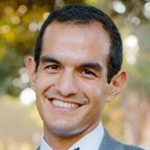
Trevor Jones: Mineral precipitation in fractures: The role of local heterogeneity on fracture-scale reactive transport processes
PI: Russ Detwiler
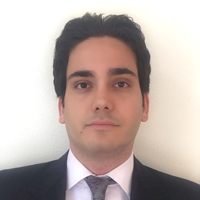
Lohrasb Keykhosropour is working with Professor Lemnitzer on investigation of kinematic soil-structure interaction (SSI) and distribution of lateral seismic soil pressures for flexible deep underground structures in urban settings through experimental and numerical simulations.
PI: Anne Lemnitzer
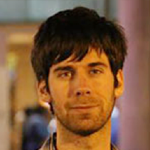
Alexandre Martinez: Alex works on Water-Energy-Food Nexus in California. The overarching goal of his work is to understand how climate extremes (e.g., droughts) affect the interactions between water, food and energy sectors
PI: Amir Aghakouchak
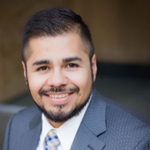
Ricardo Medina: Experimental investigation of multi-component proppant suspensions flowing and settling inside transparent fractures
PI: Russ Detwiler
